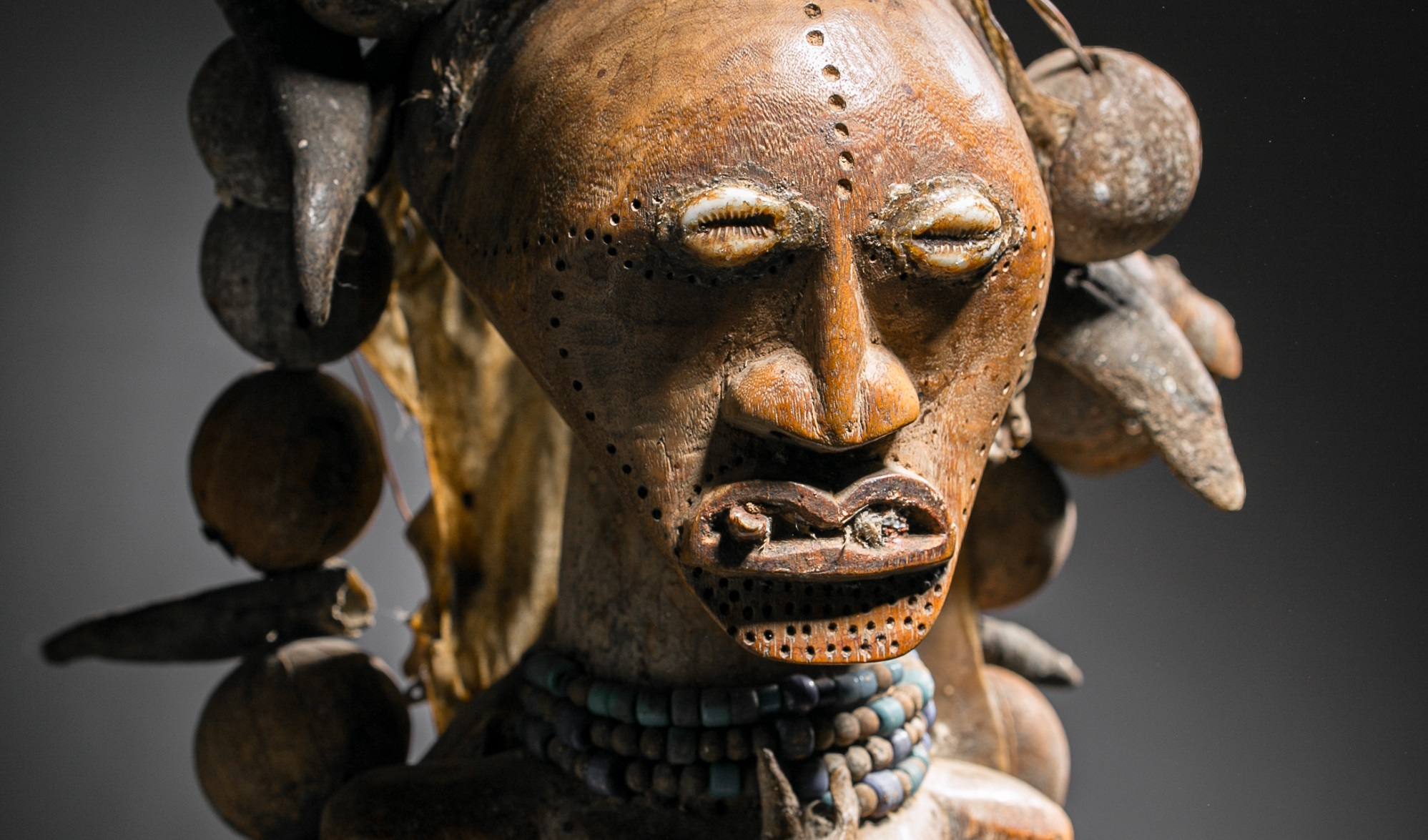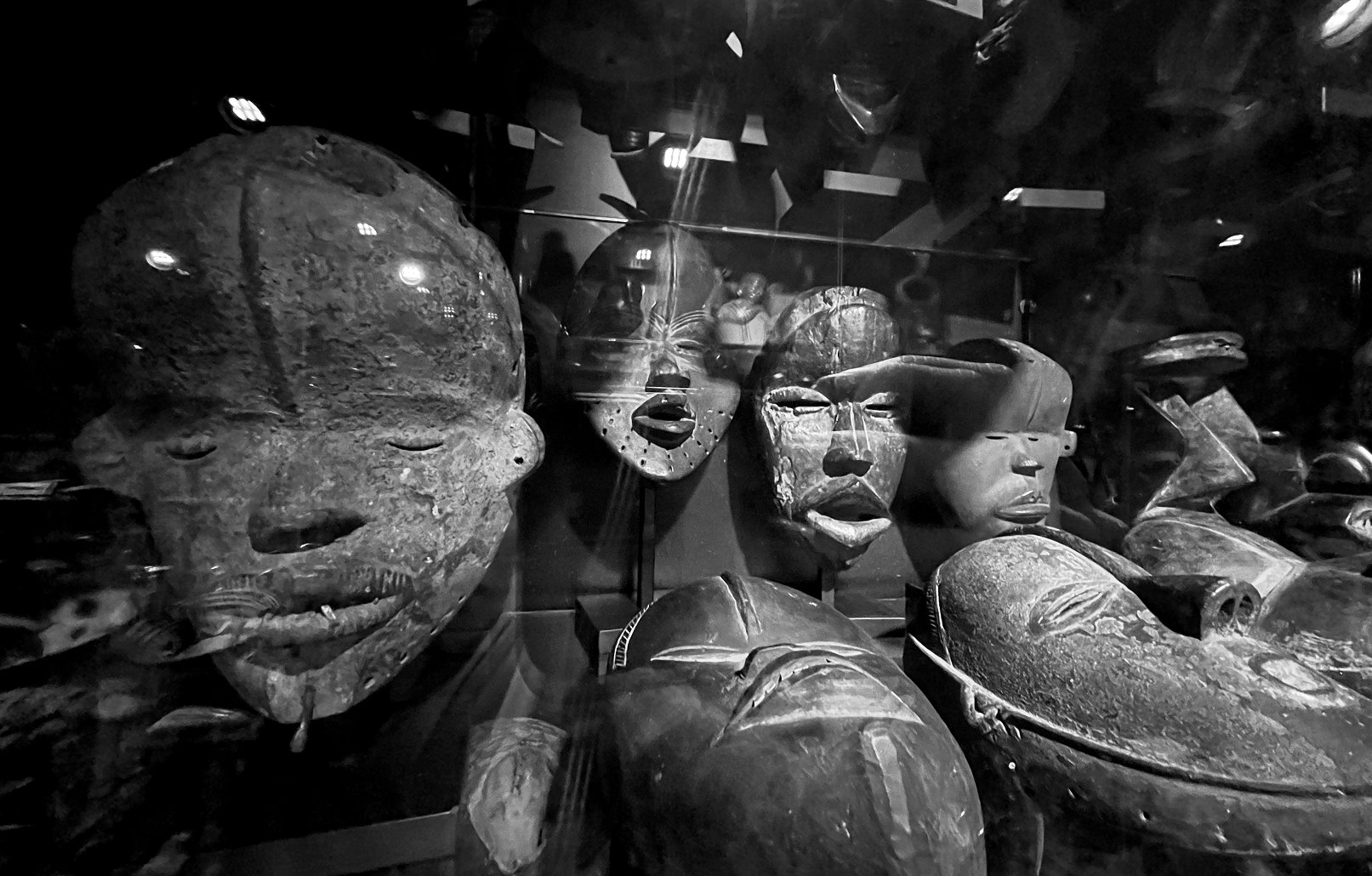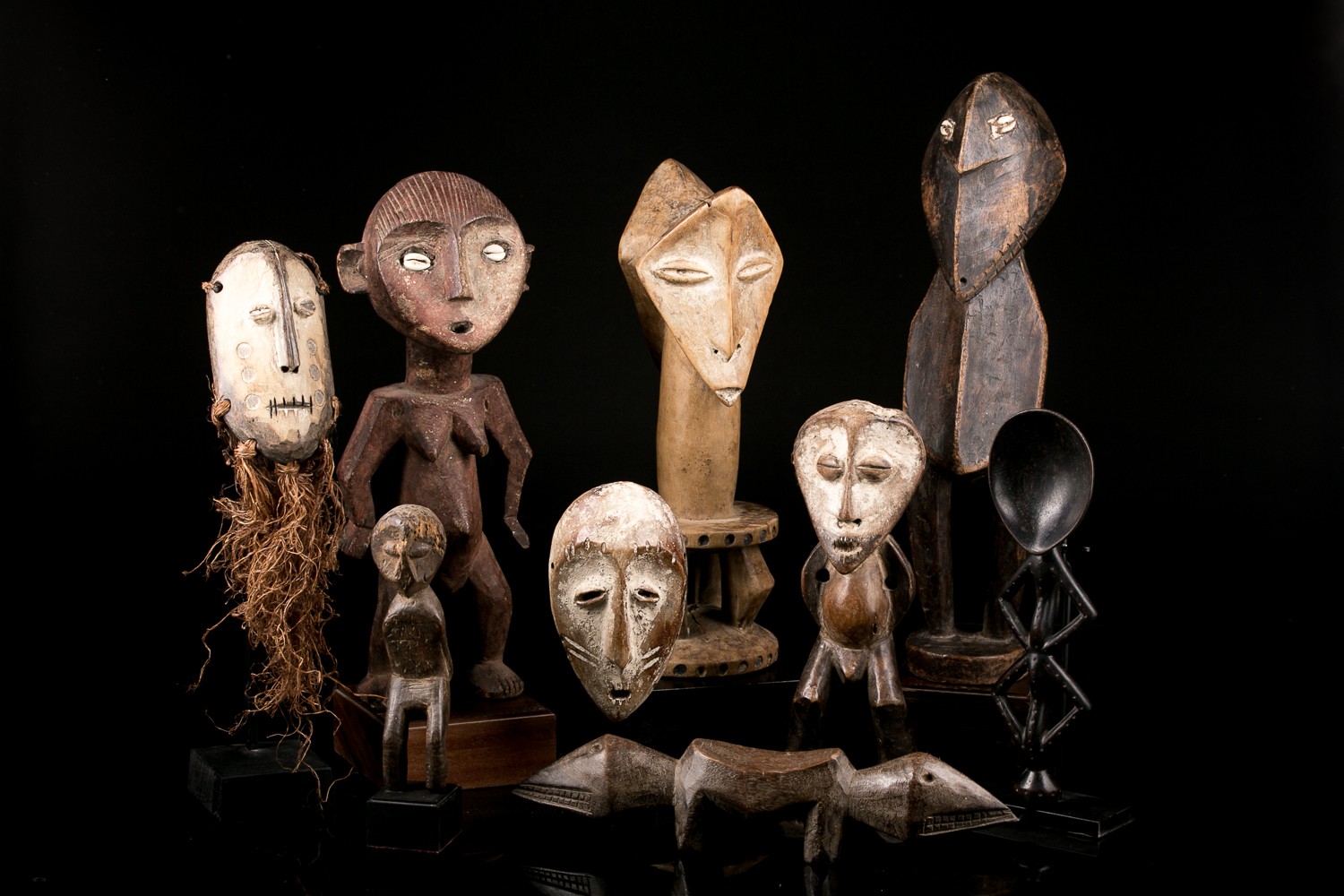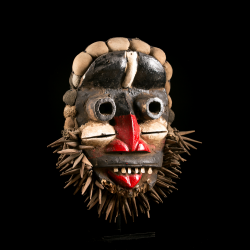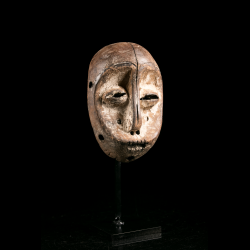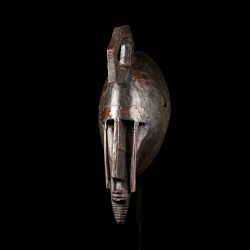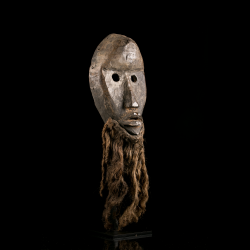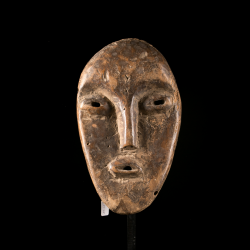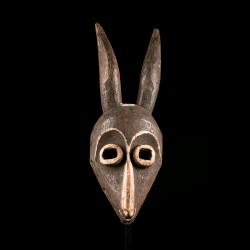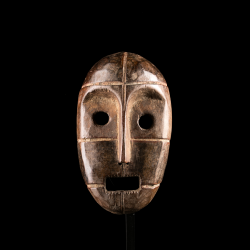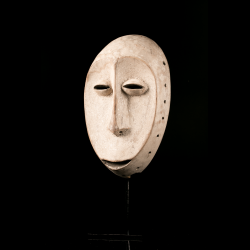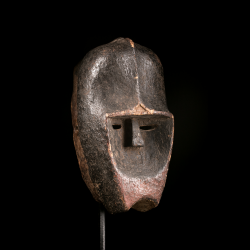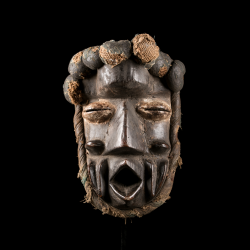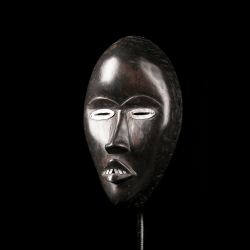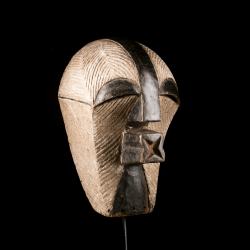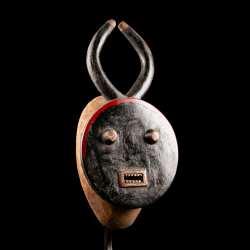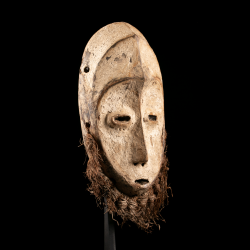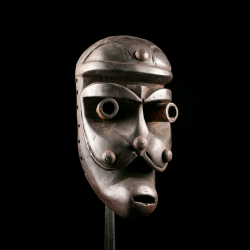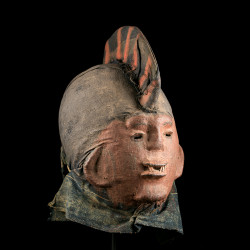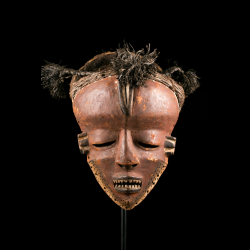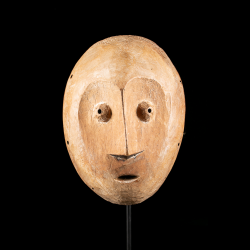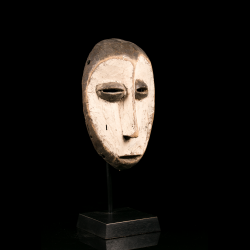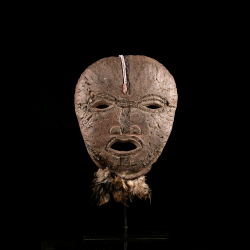Masks
The use of masks in african art
Masks, with figures, are the most famous pieces of art that come from tribal art. A lot of tribes accross the continent created these items and their complexity is as large as their diversity. They can be very small like the passeport masks made to identify a person (Chokwe), or very large to be carried on the shoulders like the Demba Nimba and Sukwava masks (Mende and Mumuye). Initiatory masks also exist like the ones made by Yaka and Suku people, or the famous small masks from the Bwami society of the Lega in Congo. African tribal masks can also be related to the spirits of Nature or surnatural forces like the Baule and Yaure believe in. As to the style of these artworks, the faces can be very realistic and refined like the Baule faces or very stylized and raw like the Dogon or Lobi carvers do.

